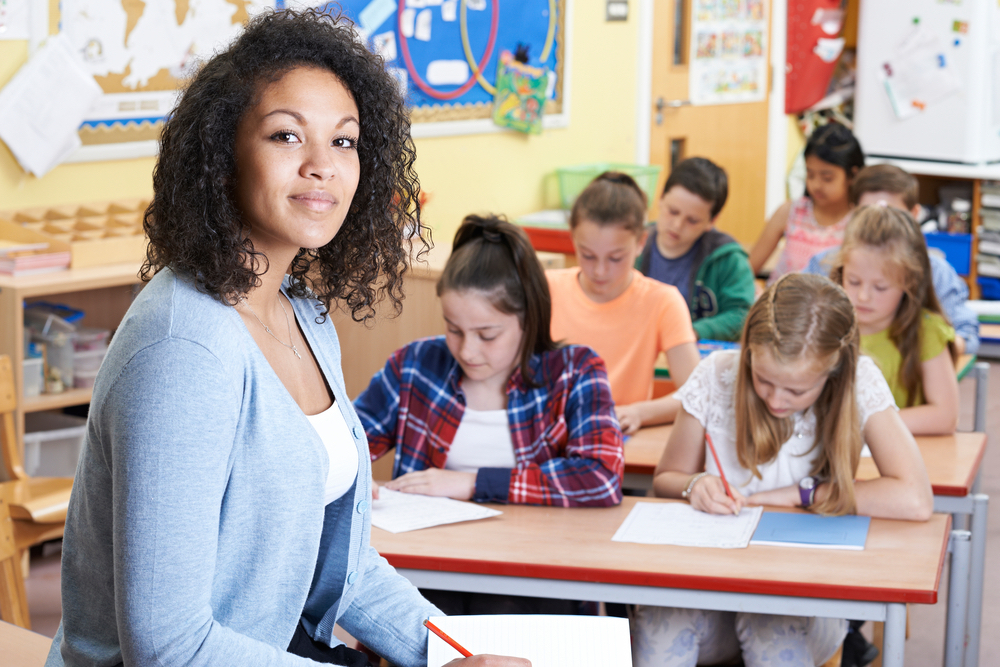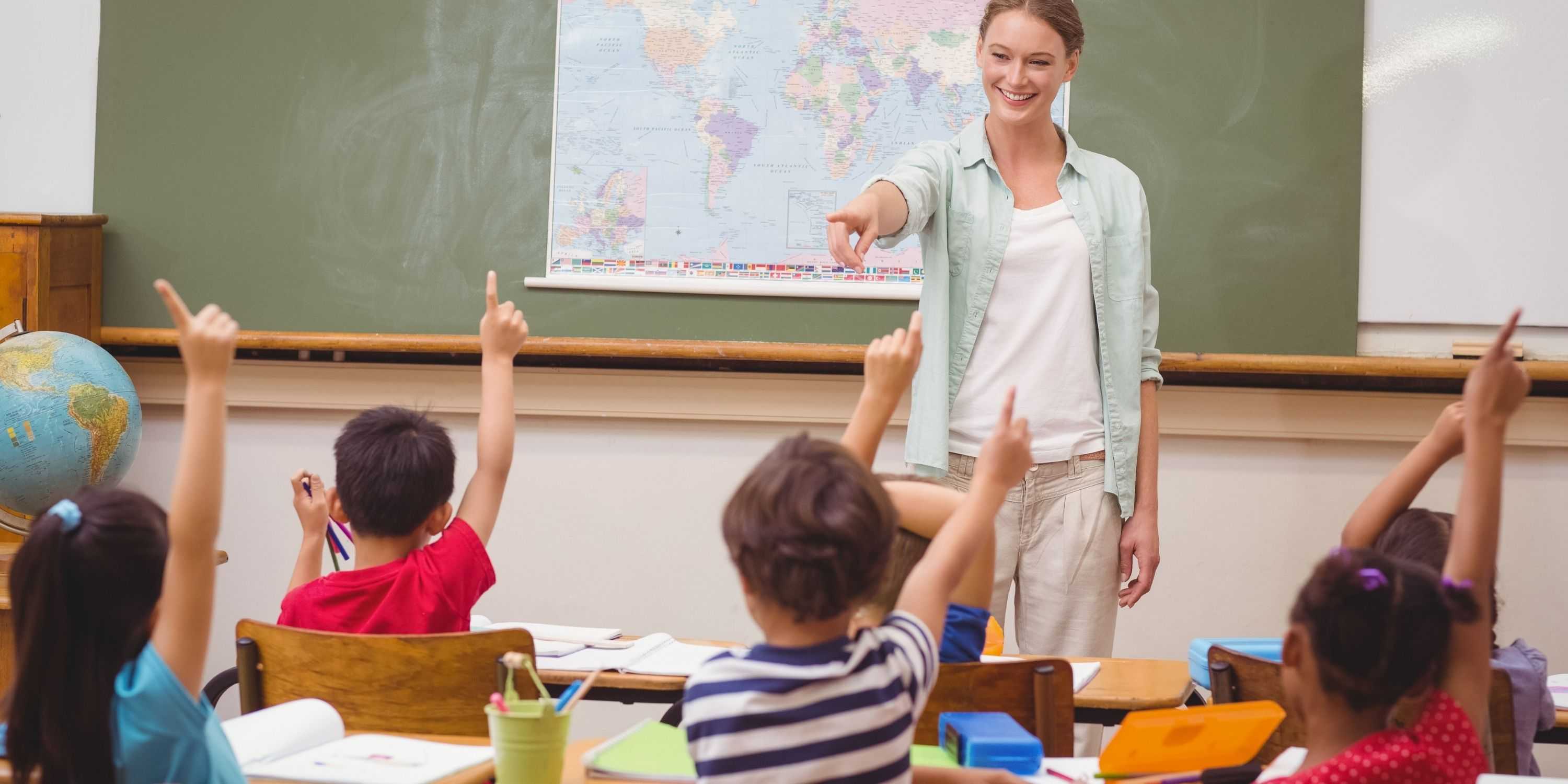Effective teaching is at the heart of quality education, and it plays a pivotal role in shaping the minds and futures of students. But what does it mean to be an effective teacher? In this article, VTJ will delve into the essence of effective teaching by exploring 13 key practices that define it.
>>>Read more: How Long Does It Take To Become a Teacher? (2023 Complete Guide)
>>>Read more: How To Use Technology In The Classroom: Benefits & Uses
What Is Effective Teaching?

What Is Effective Teaching? Effective teaching is the practice of imparting knowledge and facilitating learning in a way that maximizes students’ understanding and engagement
Effective teaching refers to the practice of imparting knowledge and facilitating learning in a way that maximizes students’ understanding and engagement. It encompasses a range of strategies, including clear communication, adaptability, engagement, assessment, and relationship-building, all aimed at creating an optimal learning environment. Effective teachers inspire students, encourage critical thinking, and equip them with the skills and knowledge they need to succeed academically and in life. It’s a dynamic process that involves not only the transmission of information but also the cultivation of curiosity, and independent thinking.
>>>Read more: What Is An Assessment Tool? 11 BEST Assessment Tools for Teachers
Why Is Effective Teaching Important In The Classroom?

Why Is Effective Teaching Important In The Classroom? Effective teaching consistently emerges as a fundamental driver of school improvement
Effective teaching consistently emerges as a fundamental driver of school improvement. As the commonly held belief goes, the quality of a school hinges on the competence of its educators. Effective teaching strategies play a pivotal role in enabling students to reach their personal and academic aspirations. Proficient teachers often serve as influential figures in the lives of many young individuals, offering them much-needed reassurance and confidence. Children who experience a sense of security, value, and engagement within the school community tend to excel academically and contribute positively to the school’s culture by fostering favorable attitudes and behaviors.
>>>Read more: Importance of Group Work in Teaching: Benefits & Examples
Moreover, effective teaching can have a monumental impact on students’ academic achievements. Establishing stronger connections with students leads to more personalized learning opportunities and higher-quality targeted assessments. The ability to gauge students’ understanding accurately facilitates progress, as both teachers and students gain insights into how to enhance learning outcomes.
>>>Read more: 10 Types of Teaching Degrees: How to Get One & Become A Teacher
13 Effective Teaching Practices
13 Effective Teaching Practices
Enjoy The Field Of Education
Passion for education is contagious. Effective teachers genuinely enjoy what they do and are enthusiastic about their subject matter. This passion not only makes the learning experience more engaging but also inspires students to develop a genuine interest in the subject.
>>>Read more: Lesson Objectives (Learning Objectives): How to Write in 4 Steps
Create A Positive Learning Environment
A positive classroom environment is essential for effective teaching and learning. Teachers who establish a welcoming, respectful, and inclusive atmosphere help students feel safe and motivated to participate actively. This environment encourages collaboration, risk-taking, and the free exchange of ideas. Effective teachers set clear expectations, maintain classroom discipline, and foster a culture of mutual respect, creating a space where students can thrive academically and personally.
>>>Read more: How to Deal with Difficult Parents: 10 Best Strategies
Motivate
Motivation is a cornerstone of effective teaching. Teachers who inspire and motivate their students can ignite a desire for learning. They use various techniques, such as setting challenging but achievable goals, providing constructive feedback, and connecting lessons to real-world applications. Motivated students are more likely to stay engaged, persevere through challenges, and take ownership of their learning journey.
>>>Read more: Meaningful Feedback for Students: Importance, Tips and Examples
Nurture Positive Relationships
Building positive relationships with students is crucial for effective teaching. When students feel seen, heard, and valued, they are more likely to trust their teacher and engage in the learning process. Effective teachers take the time to get to know their students individually, show empathy, and offer support when needed. These positive connections create a sense of belonging and emotional safety, which can significantly impact students’ overall well-being and academic success.
>>>Read more: Leadership Styles in Education: 8 Effective Ways to Lead
Understand Classroom Management
Teachers need to establish clear rules, routines, and expectations to ensure a well-organized and disciplined classroom. They understand how to address behavioral issues promptly and fairly while maintaining a positive atmosphere for learning. Effective classroom management allows teachers to create a focused and conducive space for teaching and student engagement.
>>>Read more: 21+ Best Classroom Management Books for Teachers
Have Strong Communication Skills
Teachers need to establish clear rules, routines, and expectations to ensure a well-organized and disciplined classroom. They understand how to address behavioral issues promptly and fairly while maintaining a positive atmosphere for learning. Effective classroom management allows teachers to create a focused and conducive space for teaching and student engagement.
>>>Read more: 13 Types of Students in the Classroom and How to Deal with Them
Have Secure Subject Knowledge
Effective teachers possess a deep and secure understanding of the subjects they teach. They are experts in their field, which allows them to provide accurate and comprehensive explanations, answer students’ questions confidently, and adapt their teaching to meet the varying needs and abilities of their students.
>>>Read more: 5 Types of Teaching Styles (Their Pros & Cons)
Provide High-Quality Learning Opportunities
Effective teaching goes beyond merely covering curriculum material; it involves providing high-quality learning opportunities. This means designing engaging lessons and activities that cater to diverse learning styles and abilities. Effective teachers create a variety of assessments, projects, and hands-on experiences that challenge students to think critically and apply their knowledge. These opportunities encourage active participation, creativity, and a deeper understanding of the subject matter.
>>>Read more: Why Students Get Bored & How to Engage Bored Students in the Class
Adapt To Different Circumstances
Effective teachers are adaptable and can adjust their teaching strategies to accommodate different circumstances. They recognize that every class and student is unique, and they are flexible in their approaches to meet the diverse needs of their students. Whether it’s adapting to changes in curriculum, unexpected disruptions, or varying student abilities, effective teachers can modify their teaching methods to ensure optimal learning outcomes.
>>>Read more: How To Write a Curriculum in 8 Steps: A Complete Guide
Set Reasonable Expectations
Setting reasonable and achievable expectations is a crucial practice in effective teaching. Teachers need to establish clear and realistic learning objectives for their students. When expectations are attainable, students are more motivated to work towards them. Teachers need to communicate these expectations clearly and provide the necessary support and resources to help students meet them, ensuring that learning goals are both challenging and attainable.
>>>Read more: 22+ SMART Teacher Goals Examples in 2023
Reflect
Teachers engage in regular reflection on their teaching practices. They take the time to assess what is working well and what can be improved in their instruction. This reflective process allows them to make data-driven decisions, refine their teaching methods, and continuously enhance the learning experience for their students. Self-reflection is a key component of professional growth and development for educators.
>>>Read more: How to Teach Critical Thinking Skills to Students
Offer Practical Applications
Effective teaching often involves demonstrating the real-world applications of the subject matter. Teachers help students understand how the knowledge and skills they are acquiring can be applied in practical situations. By connecting classroom learning to practical scenarios, effective teachers not only make the content more relevant and engaging but also prepare students for success beyond the classroom, emphasizing the practicality and usefulness of what they are learning.
>>>Read more: 15+ Ways to build confidence in your ESL students
Effective teaching is the cornerstone of quality education. It encompasses a diverse range of practices, from nurturing positive relationships to offering practical applications, all aimed at creating an environment where students can thrive. These 13 effective teaching practices are the building blocks of a dynamic and engaging classroom experience. Effective teachers ignite passion, adapt to diverse circumstances, and continuously refine their methods. As the educational landscape evolves, these practices remain steadfast, serving as a beacon for educators committed to shaping the future of our learners.
🌟 Are you facing difficulties in finding and securing teaching positions in Vietnam? Are visa procedures causing you trouble? Feeling overwhelmed and directionless upon your arrival in Vietnam for teaching assignments? Don’t worry, VTJ’s English Teaching Placement in Vietnam (EPIV) Program 2024 provides comprehensive support to solve ALL the matters.
👉👉👉 Click HERE to request free consultation.






200 words in what is the concept of effetive teaching